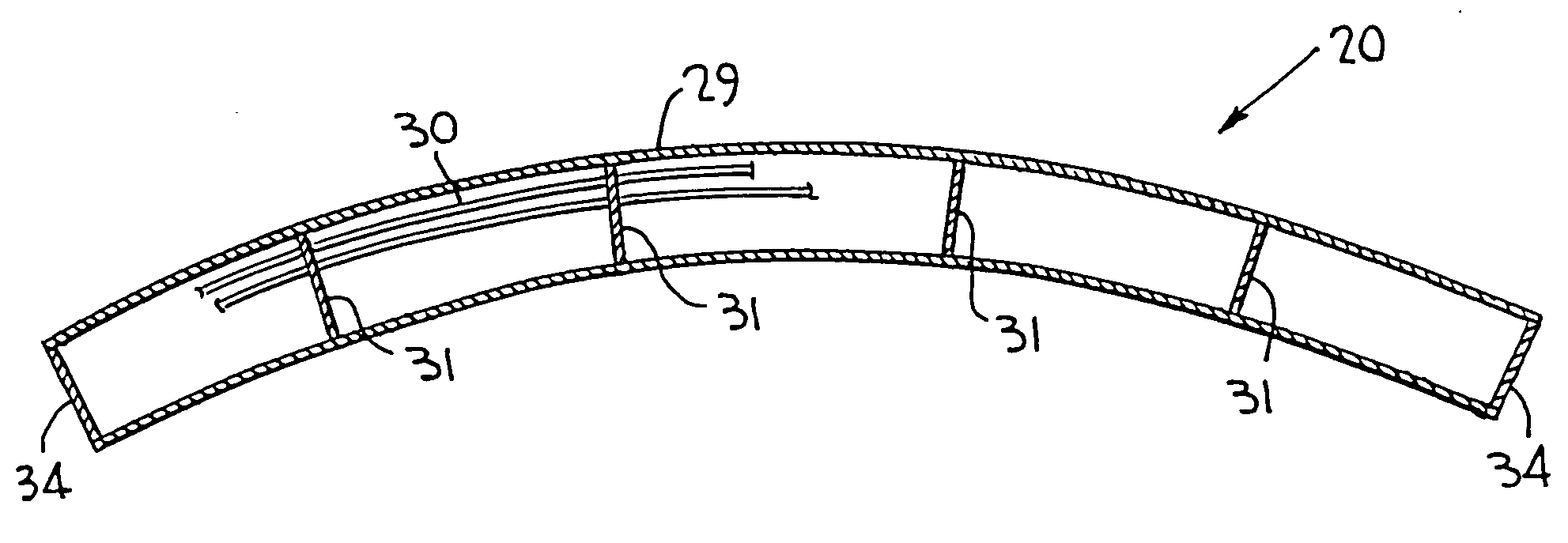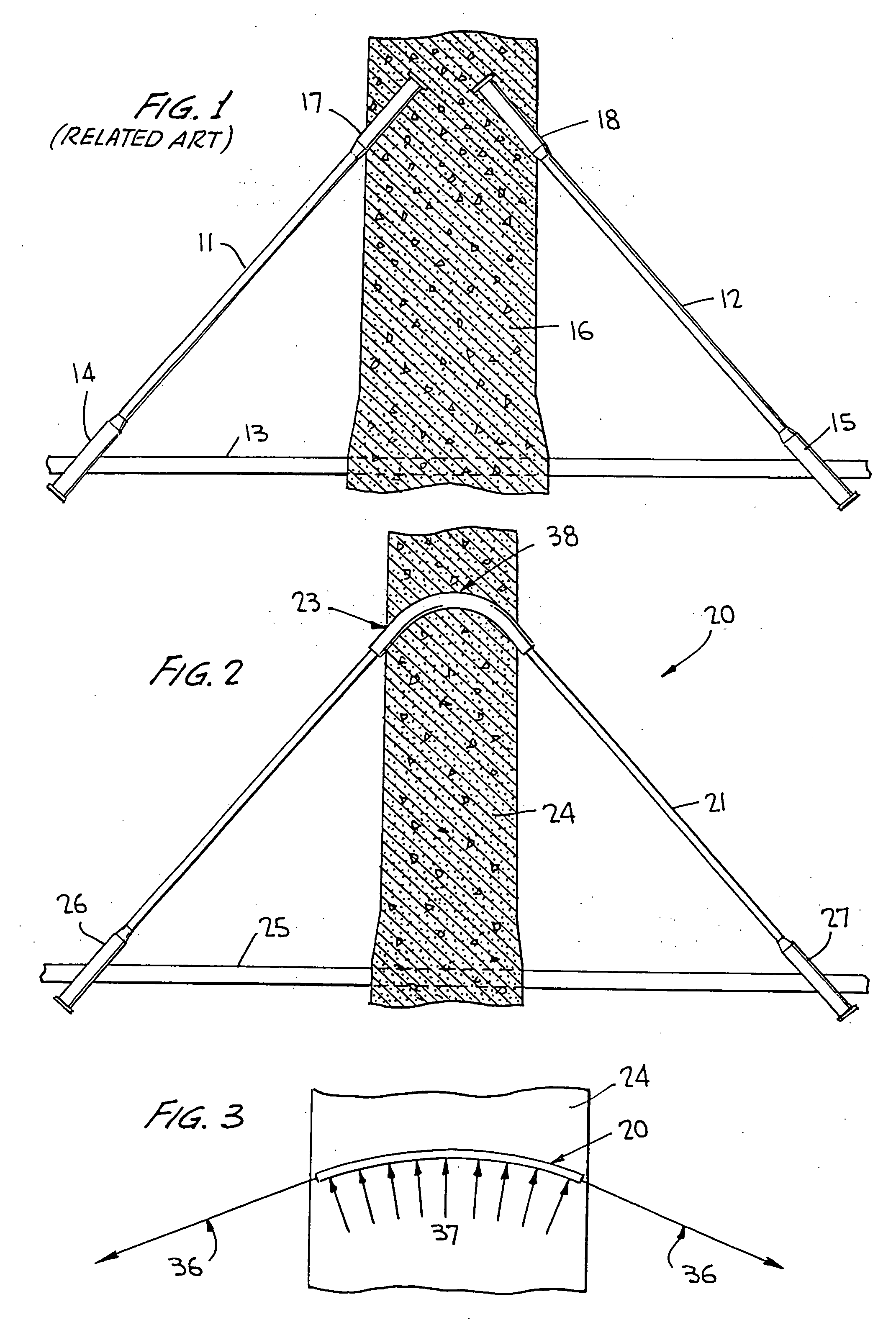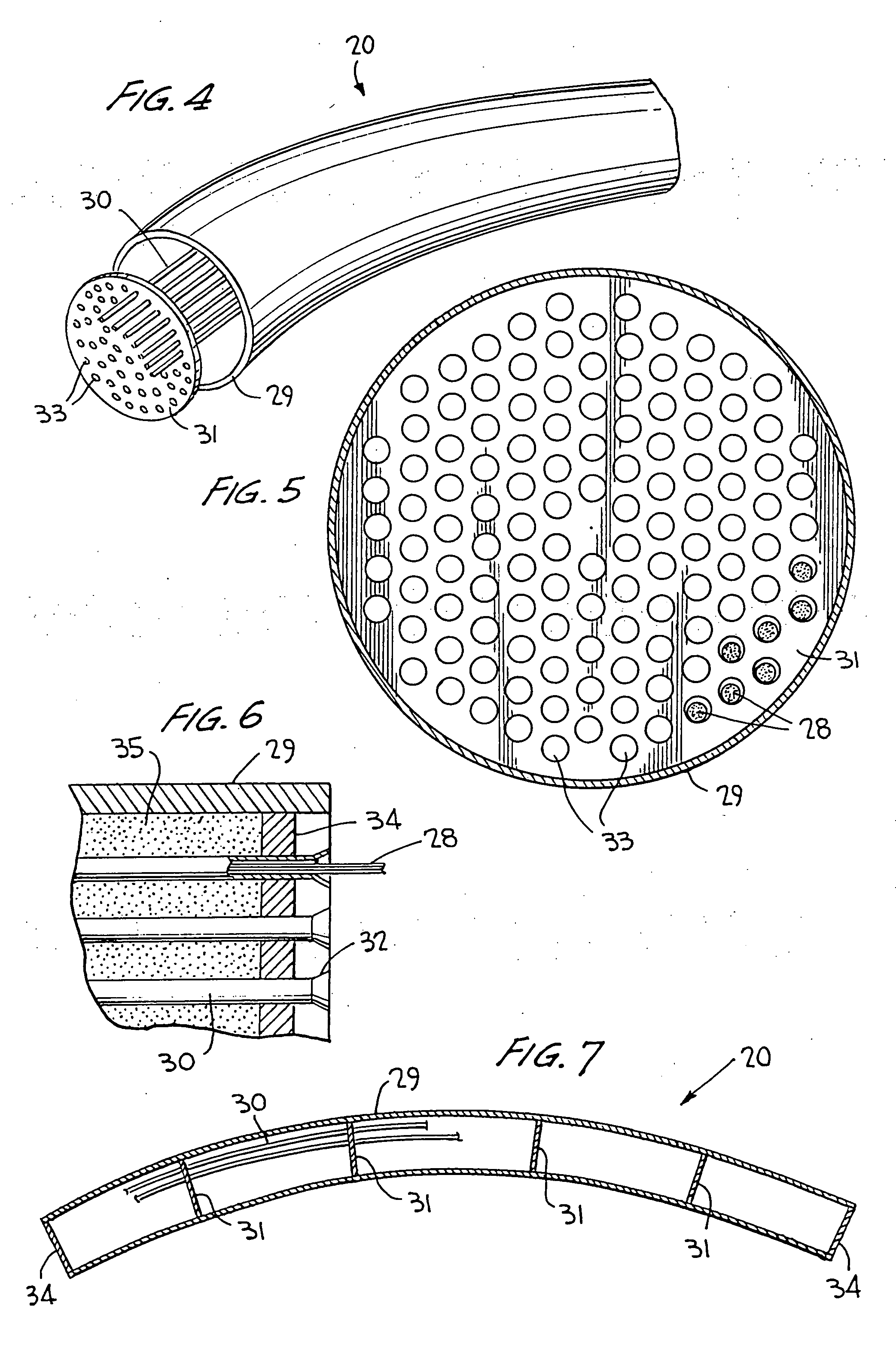Cable-stay cradle system
a cable stayed and cradle technology, applied in the field of bridges, can solve the problems of premature deterioration of pylons, deterioration of the structural integrity of individual cable strands, and expensive and time-consuming anchor installation
- Summary
- Abstract
- Description
- Claims
- Application Information
AI Technical Summary
Benefits of technology
Problems solved by technology
Method used
Image
Examples
Embodiment Construction
[0027] Referring now to the drawings wherein like reference numerals designate corresponding parts throughout the several views, FIG. 2 illustrates a cable-stay cradle system according to the present invention, generally designated 20.
[0028] Cable-stay cradle system 20 may be mounted onto vertically spaced cable stays 21 disposed at fixed or variable intervals in suitable pre-formed openings 23 along the vertical length of pylon 24. Cable stay 21 may be anchored to bridge deck 25 by suitable anchors 26, 27 in a conventional manner.
[0029] Referring to FIGS. 4-7, cable-stay cradle system 20 is shown in an assembled configuration having a plurality of cable strands 28 disposed therein, and includes a sheath 29. Cable strands 28 may extend along the length of cable stay 21. Each cable strand 28 may be individually disposed in a protective sleeve 30, and further maintained in spaced radial relationship by sleeve centering plate 31. Each protective sleeve 30 may include an enlarged end ...
PUM
 Login to View More
Login to View More Abstract
Description
Claims
Application Information
 Login to View More
Login to View More - R&D
- Intellectual Property
- Life Sciences
- Materials
- Tech Scout
- Unparalleled Data Quality
- Higher Quality Content
- 60% Fewer Hallucinations
Browse by: Latest US Patents, China's latest patents, Technical Efficacy Thesaurus, Application Domain, Technology Topic, Popular Technical Reports.
© 2025 PatSnap. All rights reserved.Legal|Privacy policy|Modern Slavery Act Transparency Statement|Sitemap|About US| Contact US: help@patsnap.com



